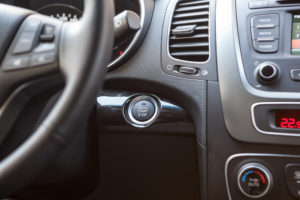As we grow older, we become more aware of our own mortality and that of our parents. As we watch them age, we start to notice the little changes, such as forgetting where they left their glasses or keys and then the bigger changes such as failing to take their medication, or falling. At this point, we start to wonder how safe it is for them to drive. We worry about their safety and the safety of others. Although some people remain mentally sharp with strong vision, reflexes and physical abilities well into their 80s and 90s, others start to show deficiencies in their 50s.
Data shows that senior citizens account for 5% of people injured in traffic crashes, 13% of all traffic fatalities and 18% of all pedestrian fatalities. The number of elderly drivers is expected to triple in the United States over the next 20 years, according to smartmotorist.com. Some states require mandatory driving tests after a certain age or require physicians to disclose conditions that could affect driving ability.
According to the Insurance Institute for Highway (IIHS), older people stand a greater chance of becoming a fatality in a traffic collision due to fragility and health issues. Between 1997 and 2006, the death rate for older drivers declined steadily with no definitive reason. So other than expecting your parents to self-limit their driving, how can we assure our parents are as safe as they can be on the road, as well as not endangering others?
First, watch for warning signs such as fearful and nervous driving, difficulty staying in the lane of travel, trouble paying attention or slower response to unexpected situations. Keep informed regarding your parent’s medical conditions and medications, and talk to your parents about how they feel about their driving abilities and focus, as well as their vision. If you have concerns regarding your parent’s driving, try to discuss the safe ability to drive with your parents’ physicians or take the keys and/or the car away and arrange for alternate transportation. Remember that the ability to drive is closely connected to a person’s feeling of independence and dignity, so be cognizant of this when addressing the issue of elderly driving.

The Legal Examiner and our Affiliate Network strive to be the place you look to for news, context, and more, wherever your life intersects with the law.










One Comment
alan angelo
I am totally bemused by this decision to scrap automatic testing for elderly drivers.
I am 74 years of age and even tho I am very fortunate to still be good condition I am a firm believer that we should all be tested for competence and driving ability from 75 onwards.
there is no excuse for allowing us to be happily out amongst an unsuspecting public and putting peoples lives at risk just because we want to drive our car.Bugger the response time in an emergency or driving too slowly and being tailgated and panicking because of it.response times at these ages are nowhere near the same.i know that my comments seem hard ,but I am one of them.
Comments for this article are closed.